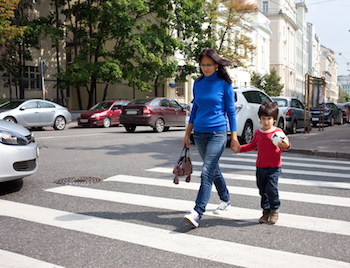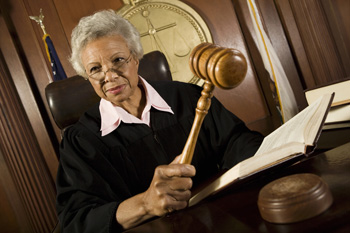Our DMV-approved online drivers education course is designed just for teens. Study at your own pace, pass the final test, and get your certificate.
Sign Up Now – Only $19.90 Learn More About Teen Drivers EdYield and right of way violation
In previous chapters, we have learned about the right of way and yielding. If you fail to yield, you can get a ticket.

Here are some common yield/right of way violations:
Failure to yield or give a right of way to pedestrians
It is important always to look out for pedestrians and give the right of way to them whether they are on a crosswalk (marked or unmarked), sidewalk, approaching a crosswalk or just walking near your car.
If you do not yield or give the right-of-way to a pedestrian, you can get a ticket. The penalties differ from county to county, but there is always a base fine plus penalty assessments and various court fees.
You can get penalties and fines ranging from approximately $220-$450 depending on whether this is your first or secondary offense and the county in which you receive your ticket.
If you don't stop to let a blind pedestrian cross the street, you will be charged with a misdemeanor that could result in six months in jail, a $1,000 fine, or both.
What happens if I hit a pedestrian?
If you fail to stop for a pedestrian and cause him/her injury or death, and it is determined to be your fault, you can face serious consequences.
Since the law requires that you must always give the right of way to pedestrians when you are in an accident with a pedestrian, the chances of your being considered negligent and at fault are higher. It cannot be emphasized enough how careful you must be near pedestrians.
Civil Lawsuit
If you hit a pedestrian with your car, since your car is large and heavy, you can cause serious injury or even death. If you cause death, the family of the deceased will lose a loved one prematurely or, if you cause injury, the medical bills for the injured person can be substantial – that person can be disabled and in pain for the rest of his/her life.
In either case, if you were at fault, you (or your parents or guardian if you are under eighteen) are more likely to face a civil lawsuit for negligence and the serious injury or death that you have caused. If you only have minimum liability insurance, it can only cover up to $15,000 of bodily injury.
The real cost of hiring an attorney to represent you in court in this type of situation, plus the costs of causing death, ambulance, hospital stays, lifetime of injuries and pain, can run into the millions and your minimum liability insurance will not cover such a high liability cost.

Criminal Penalties
The criminal penalty comes into play when the state can build a case against you for breaking the law and causing serious injury or death of others. For example, if you were under the influence of drugs or alcohol, you are more likely to face criminal charges, imprisonment, probation, hefty fines and penalties, and suspension or revocation of your driver's license.